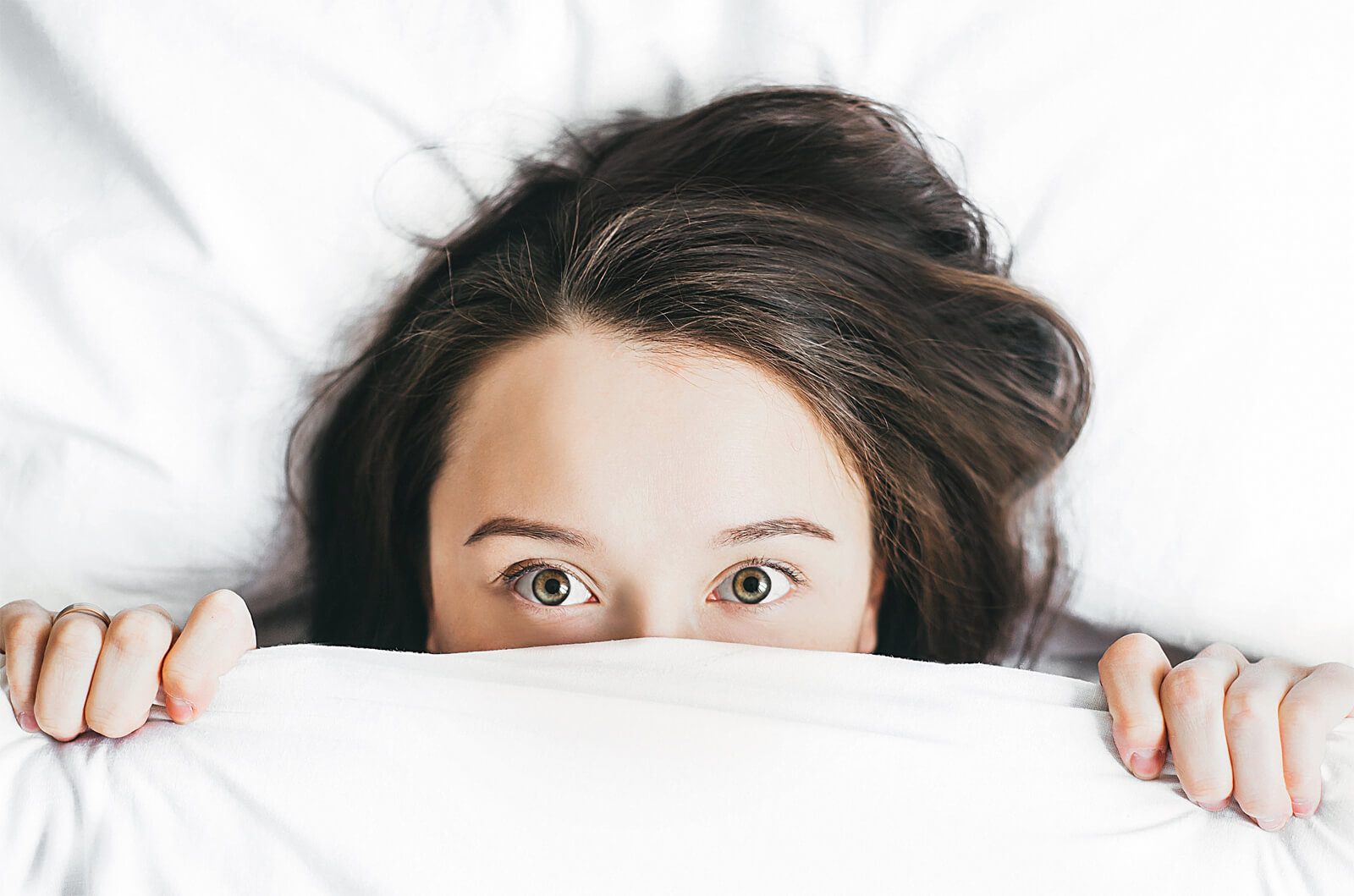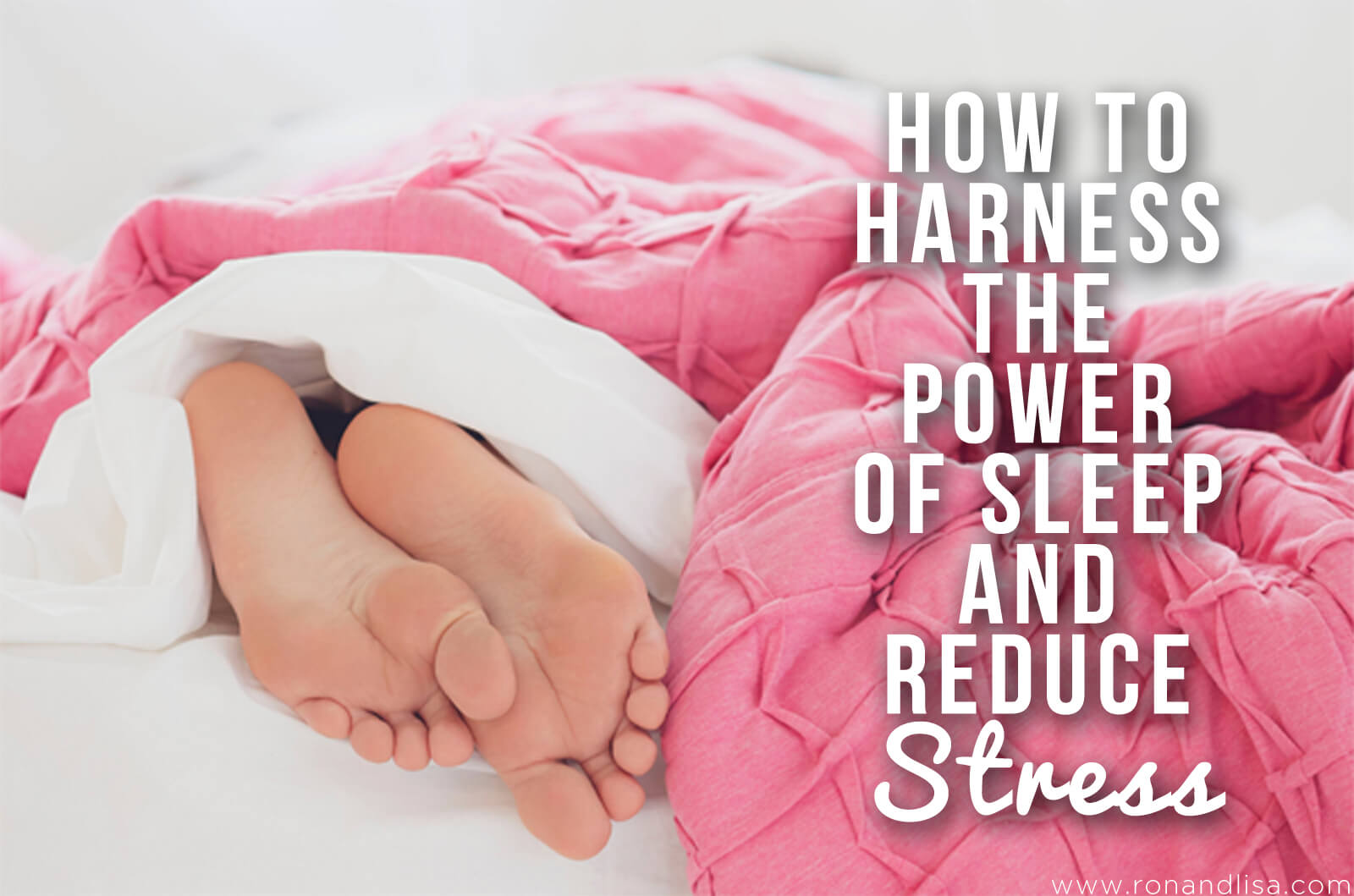By guest blogger, Karoline Gore
In 2018, Americans were voted as one of the most stressed people in the world, according to findings of a Gallup Poll. Around 55 percent of Americans cited feeling stressed for most of the day, with anxiety and worry being common among another 45 percent of the population – mainly related to finances. As millions of us seek ways to lead a healthy life, we search for ways to address our stress levels and minimize the consequences of a stressful life. Many of us turn to exercise, mediation or even medication, but did you know that reducing your stress levels could be as simple as improving your sleep routine?
Sleep’s Role in Your Stress Levels

A good night’s sleep plays a role in many of our other parts of life, including our mental wellbeing and productivity at work. When it comes to stress, we can say that there is a two-way, interdependent relationship between stress and sleep. It is not uncommon to hear of stress-induced insomnia, with many people finding it difficult not only to fall asleep but to remain asleep throughout the night thanks to hyperarousal.
Similarly, the lack of adequate sleep can be the source of stress for many by making them more susceptible to certain physical consequences. Both stress and poor sleep affect a woman’s chances of conceiving, impacts both men and women’s immune systems, and can lead to deteriorated mental health. With such a strong relationship being displayed between the two, people should be making a good night’s system a priority. However, achieving to 8-9 hours each night is not an automatic guarantee. It takes preparation on your part and that begins with the perfect sleeping environment.
Establishing A Healthy Sleep Environment

Having a sleeping environment that is calm and conducive to resting is important to establishing a good sleep routine. This involves everything from the paint colors on your bedroom walls to choosing an eco-friendly mattress, linens, and nontoxic room scents. Start with a more personal change: setting a bedtime routine. Having a bedtime routine allows your body to adjust and in time, anticipate the natural order of your day. Some find the common bath and bed routine enough but feel free to personalize this completely to your lifestyle and taste. Incorporating certain essential oils such as lavender either in your bath products or as a room scent can also help you relax. This serves two purposes; it is a great way to calm your mind and drift off to sleep and it is also a recommended way to ease stress, but take note that lavender has been shown in studies to have estrogenic properties.
When it comes to your bedroom, calming wall colors have been shown to increase a sense of calm and encourage sleep. Some of them include shades of blue, silver and yellow according to a recent Travelodge sleep survey. Not only do certain colors help you sleep better, but 60 percent of consumers with blue bedrooms said they wake up feeling happier which only further combats your stress levels. You should also consider the layout of your room including the positioning of your bed in terms of sunlight, sunrise, the earth’s magnetic field, nearby transformers and noise levels. Keep clutter to a minimum and aim to minimize the use of electronics in the bedroom (turn off Wi-Fi and or at least turn smart phones to airplane mode).
Changing your sleep routine does not have to mean major changes either. Start small and you can soon be enjoying the benefits of improved and reduced stress levels. Not only will you awake feeling more rested and happier, but you’ll also be more equipped to tackle stressful situations head-on.



